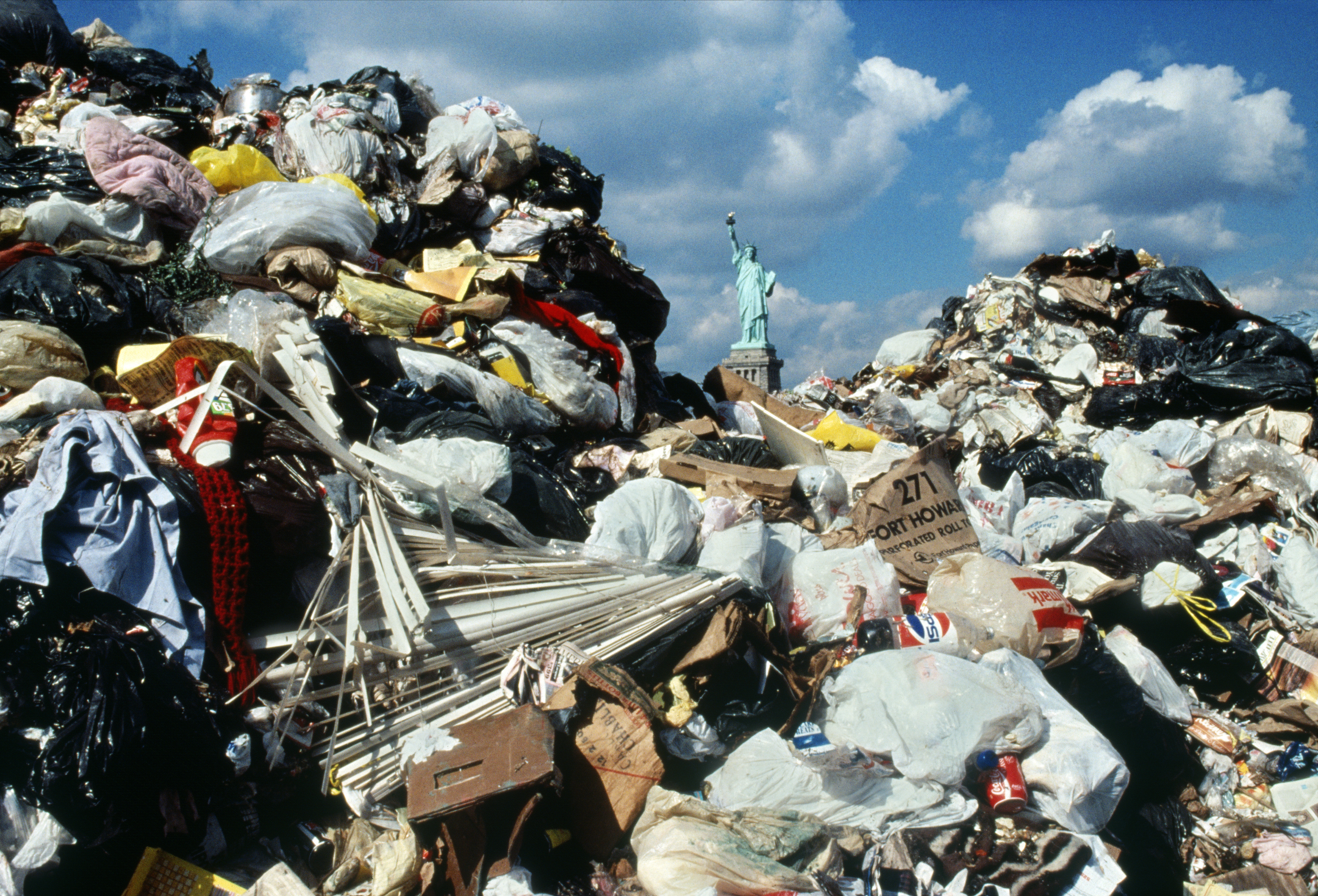Has America really lost its greatness?
Donald Trump's campaign slogan has hit a nerve. But what does it even mean?


Donald Trump's campaign slogan is "Make America Great Again," which asserts that though America was once great, it no longer is. But to hear his litany of complaints — about how our leaders are idiots, we get our butts kicked by other countries, and we can't do anything right — you'd almost think his real slogan is "America: What a Dump."
And depending on how you ask the question, it seems that many of us would agree. A new Bloomberg poll shows that 72 percent of Americans think America isn't as great as it once was. But is that true? And if it is, so what? What does it mean for a country to be "great," and how important is it?
People talk a lot about the loss of the America they once knew, but most of the time you can interpret that as "Things were better when I was a kid." That means little more than "Things were better when I had no cares or responsibilities, and viewed the world with the eyes of a child." And there are some kinds of change that some people see as wonderful and others see as tragic; for instance, in the 1950s, union representation was much higher than it is now, which I think was better, but also, Jim Crow was in full force in the South, all kinds of racial discrimination were legal everywhere, and women found it all but impossible to even try to achieve their ambitions. So are we "greater" now than we were then? In some ways yes, in some ways no.
Subscribe to The Week
Escape your echo chamber. Get the facts behind the news, plus analysis from multiple perspectives.

Sign up for The Week's Free Newsletters
From our morning news briefing to a weekly Good News Newsletter, get the best of The Week delivered directly to your inbox.
From our morning news briefing to a weekly Good News Newsletter, get the best of The Week delivered directly to your inbox.
When we talk about greatness, we're often talking about how we affect, and compare to, the rest of the world. It's hard to say that our cultural dominance is any less than it once was, for instance. All over the world, people watch American movies and television shows, listen to American music, and play American video games. English is the closest thing there is to a global lingua franca, and in a country where only one in four of us speak a second language, we're almost shocked when some foreign leader or celebrity isn't capable of conversing with us in our native tongue.
We still have the world's largest and most widely distributed military, with American military bases in 74 countries around the globe. For some, it's obviously not enough; to hear many Republicans tell it, we're insufficiently great because the mere thought of American military might doesn't make every adversary quake in terror and lay down their arms. They also believe that it's important for America not just to have the world's strongest military but to be the world's policeman, sending our young people around the globe to fight and die wherever we think it might do some good. They argue that if we didn't do it, there would be a vacuum into which some country we're not fond of, like Russia or China, might move.
But let's imagine that there was a power larger than us that shared our values. If, say, the U.K. or Canada took over as global cop, with the same results (don't worry about whether such a thing is possible; for the sake of the exercise let's assume it were), would that be bad for us in some real way that diminished Americans' lives?
It's hard to say exactly how, which leads to the other question about greatness: Should we measure it by how pleased we are with what's going on here at home? The less-than-stellar economy is one of the biggest reasons why so many people say we've lost our greatness, which is understandable. Even though the job market is healthy, the decades-old trend of stagnant wages has left many Americans feeling as though the future might not be better than the past.
But in the Bloomberg poll, they gave people a few explanations for the decline of our greatness, and 59 percent chose either "our own lagging work ethic" or "moral decay." The first is an odd thing to believe, when Americans take fewer vacations and work longer hours than the citizens of any industrialized country. As for moral decay, that's in the eye of the beholder. Some of us think America is all the greater because, for instance, gay people can get married here; others obviously believe just the opposite.
But plenty of us think we're being dragged down by a malady of the spirit; the fault is not in our leaders or in our stars, but in ourselves. Not that many of those people don't blame leaders, one in particular. For a conservative, it's hard to think America is as great as it once was after the public elected and then re-elected Barack Obama. Many, perhaps most, Republicans literally believe that Obama has a grand plan to take America down and destroy everything that makes it great; if you're a consumer of conservative media, you've heard this argument hundreds, maybe thousands of times over the last seven years.
Partisanship doesn't stop with distaste for the president. Political scientists have long known that partisan identification affects how people view national conditions; for instance, when there's a Democrat in the White House, Democrats will say the economy is doing better, and when there's a Republican in the White House, Republicans will say it's doing better, even if the truth is that nothing has changed. So when the other guys are in charge, we tend to think a grim pallor hangs over the country, and greatness can only be regained if our party runs things again.
Finally, consider this: According to the UN's World Happiness Report, the world's happiest countries are Switzerland, Iceland, Denmark, Norway, and Canada — a bunch of cold-weather social democracies with but a fraction of the influence over global affairs that we have. The U.S. came in 15th — better than most of the world's nations, but not quite number one. And if America isn't number one, what are we?
Sign up for Today's Best Articles in your inbox
A free daily email with the biggest news stories of the day – and the best features from TheWeek.com
Paul Waldman is a senior writer with The American Prospect magazine and a blogger for The Washington Post. His writing has appeared in dozens of newspapers, magazines, and web sites, and he is the author or co-author of four books on media and politics.
-
 What does 'conquering' Gaza mean to Israel?
What does 'conquering' Gaza mean to Israel?Today's Big Question Benjamin Netanyahu's cabinet has approved a plan to displace much of the Palestinian population while seizing and occupying the territory on a long-term basis.
-
 Casey Means: the controversial 'wellness influencer' nominated for surgeon general
Casey Means: the controversial 'wellness influencer' nominated for surgeon generalIn the Spotlight Means has drawn controversy for her closeness to RFK Jr.
-
 Trump taps Fox News' Pirro for DC attorney post
Trump taps Fox News' Pirro for DC attorney postspeed read The president has named Fox News host Jeanine Pirro to be the top federal prosecutor for Washington, replacing acting US Attorney Ed Martin
-
 The JFK files: the truth at last?
The JFK files: the truth at last?In The Spotlight More than 64,000 previously classified documents relating the 1963 assassination of John F. Kennedy have been released by the Trump administration
-
 'Seriously, not literally': how should the world take Donald Trump?
'Seriously, not literally': how should the world take Donald Trump?Today's big question White House rhetoric and reality look likely to become increasingly blurred
-
 Will Trump's 'madman' strategy pay off?
Will Trump's 'madman' strategy pay off?Today's Big Question Incoming US president likes to seem unpredictable but, this time round, world leaders could be wise to his playbook
-
 Democrats vs. Republicans: who are the billionaires backing?
Democrats vs. Republicans: who are the billionaires backing?The Explainer Younger tech titans join 'boys' club throwing money and support' behind President Trump, while older plutocrats quietly rebuke new administration
-
 US election: where things stand with one week to go
US election: where things stand with one week to goThe Explainer Harris' lead in the polls has been narrowing in Trump's favour, but her campaign remains 'cautiously optimistic'
-
 Is Trump okay?
Is Trump okay?Today's Big Question Former president's mental fitness and alleged cognitive decline firmly back in the spotlight after 'bizarre' town hall event
-
 The life and times of Kamala Harris
The life and times of Kamala HarrisThe Explainer The vice-president is narrowly leading the race to become the next US president. How did she get to where she is now?
-
 Will 'weirdly civil' VP debate move dial in US election?
Will 'weirdly civil' VP debate move dial in US election?Today's Big Question 'Diametrically opposed' candidates showed 'a lot of commonality' on some issues, but offered competing visions for America's future and democracy